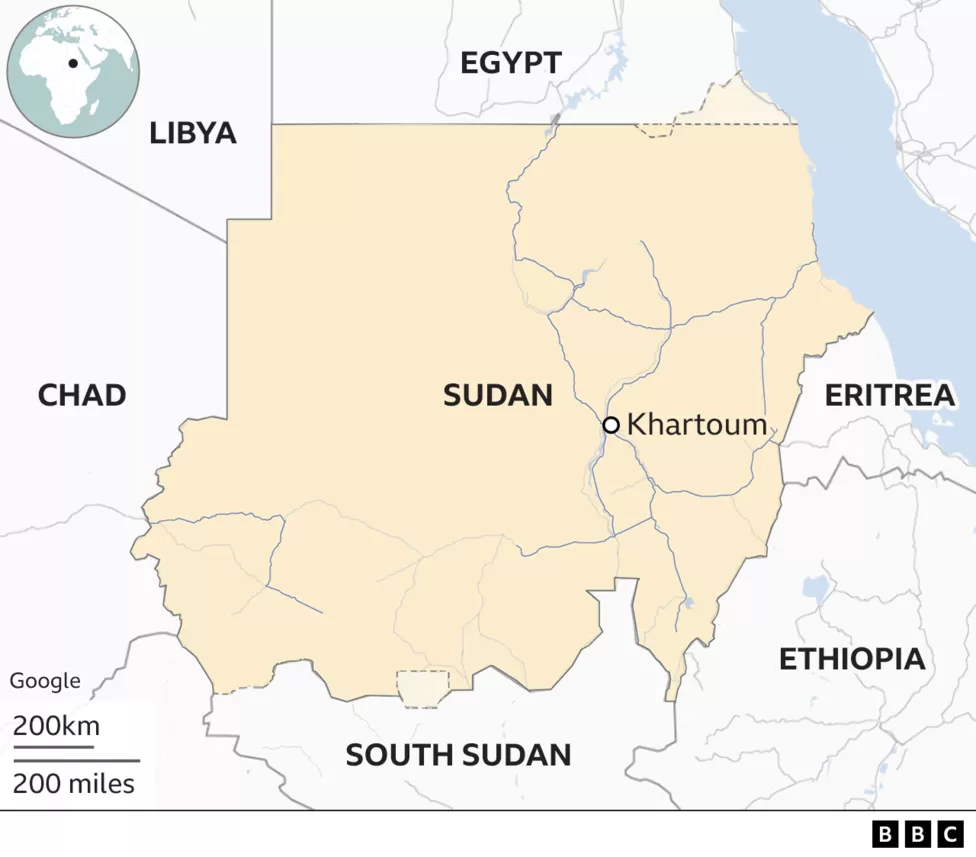According to residents, the Sudanese army is repelling an attempt by paramilitaries to push into its main airbase near Khartoum.
The military uses the airstrip to launch air strikes against the Rapid Support Forces (RSF), while foreign countries utilize it to evacuate their nationals early in the fighting.
Despite the announcement of a new seven-day truce, the fighting continues.
Previous cease-fires have disintegrated within minutes of being declared.
According to a US-Saudi statement, the latest truce will go into effect on Monday evening and will be unique in that it includes a “ceasefire monitoring mechanism.”

For the past two weeks, the US and Saudi Arabia have been mediating negotiations between the army and the RSF in the Saudi city of Jeddah in an attempt to halt the war that erupted on April 15.
Most people I spoke with in Khartoum thought a truce would last only if international monitors supported by UN forces were deployed.
As the battle continues, busloads of civilians continue to depart Khartoum and its sister cities across the Nile, Bahri and Omdurman, indicating their lack of faith in the recent ceasefire agreement.
RSF fighters in around 20 trucks are stationed east of the Nile, attempting to cross a bridge to the Wadi Saeedna airstrip.
Sudan’s military has reacted with heavy artillery.
The conflict has been raging for several days, but it has recently worsened.
“It feels like doomsday since early this morning [Sunday].” “I believe they will torture us until the ceasefire is implemented,” claimed a resident of Bahri’s Khojalab area.
The military cannot afford to lose control of the airfield, which is critical to its plan of pounding the RSF from the air while fighting to retake Khartoum and the other two cities.
On Sunday, an air strike was also carried out on Omdurman, with explosions audible in the city’s southern districts.
Earlier, the US State Department acknowledged previous failed attempts to broker peace in Sudan, but stated that this time was different.

“Unlike previous ceasefires, the agreement reached in Jeddah was signed by the parties and will be supported by a US-Saudi and international-supported ceasefire monitoring mechanism,” the statement stated, without providing any further specifics.
Sudan’s military has stated its commitment to the accord. The RSF has not responded.
The agreement also permits for the distribution of humanitarian aid.
Food, money, and essentials are running low, and relief organizations have often complained about not being able to deliver enough assistance in Khartoum.
Both the regular army and the RSF have been requested to facilitate humanitarian aid distribution, restore key services, and withdraw troops from hospitals.
“It is past time to silence the guns and allow unhindered humanitarian access,” US Secretary of State Antony Blinken stated on Twitter.
“I implore both parties to uphold this agreement – the world is watching.”
The conflict erupted as a result of a power struggle between Sudan’s regular army chief, Abdel Fattah al-Burhan, and his former deputy, RSF leader Mohamed Hamdan Daglo.
Hundreds of people have been murdered in the violence, and the United Nations has warned of a worsening scenario in Africa’s third-largest country, where a substantial number of people were already reliant on aid before to the crisis.
Both parties signed a pledge on May 11 to create the framework for humanitarian aid in Sudan.
However, UN assistance head Martin Griffiths told the AFP news agency earlier this week that there had been “significant and egregious” violations of that accord, which he added fell short of a truce.


